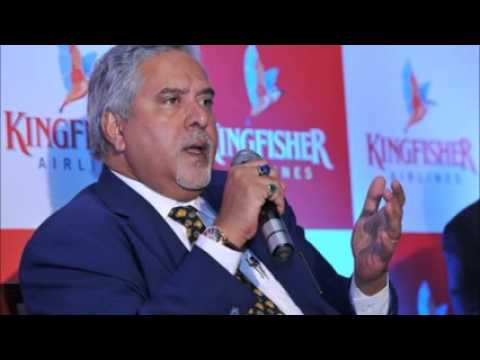
(Originally posted here)
Vijay Mallya, the Chairman of United Breweries, exited the country on March 2nd 2016 – defaulting on loans worth Rs.9000 crores to 17 banks. The media storm which subsequently rained down upon the Mallya name would befit the crime, if it wasn’t painting an incomplete picture.
Given the frenzy and the weight of the government apparatchiks brought down to bear on the Mallya brand, it wouldn’t be remiss for the layperson to assume that Vijay Mallya is the heftiest loan defaulter of all time. At roughly $1.5 billion worth of money owed, his figures would make Donald Trump proud.
Yet, as verified by papers released by the RBI, Kingfisher Airlines was Top 5 at best. Indeed, if Newslaundry’s independent verification is to be trusted, Mallya was at best Top 10 on the list of India’s largest defaulters.
So, Why Should I Care?
We can practically hear you screaming this question. You’re sick of hearing about Mallya, and how one big corporateur didn’t pay an ungodly sum of money to another bunch of fat banks.
But, as Hummingbill has been trying to educate you, the damage done by late payments never ends there.
Take the example of one Manmohan Singh, a crop farmer in Uttar Pradesh. In December 2015, when he arrived at the Nand branch of the Bank of Baroda to operate his two accounts (total balance: Rs.5200) and pay his monthly crop loan installment, his accounts had been frozen as per the directions of the Mumbai Head Office – because he was listed as a “guarantor” to a loan to one Vijay Mallya.
This farmer, whose wife was undergoing treatment for a brain tumor, had to sell his crops at a fraction of their value for cash, while the bank sorted out this “technical error”. He eventually had to pay 12% interest on late payment to the crop loan, also taking on board the mark against his credit history for no fault of his own.
Sounds like a freak isolated incident, doesn’t it? Well, it was freaky, but by no means was it the only one.
Enter Subhash R Gupta and Subhash Ramdulare Gupta, both of Mumbai – one a security guard living in a Slum Redevelopment Authority building in Vile Parle, the other a vegetable hawker near Khar station. Both these men were identified as “guarantors” to Vijay Mallya, and had their meager assets and FDs frozen until further notice by the Bank of Baroda.
Now, how could this happen? As it turns out, these three men were mis-identified as Manmohan Singh Kapur and Subhash R. Gupte, both Directors on the board of the defunct Kingfisher Airlines. And, as FirstPost’s investigation concluded, this wasn’t a simple “technical error affecting a single man” as the nation’s headlines had been screaming, but an abject lack of even the most basic fact checks.
But This Isn’t A Late Payment Fallout
And that’s where we disagree. It is by discounting financial, administrative and other real-world impacts of late payments such as these that we, as entrepreneurs, have escalated the late payment culture in India to its current catastrophic levels.
I mean, 98% of businesses in India trade on credit, and 97% of them were paid late by clients in 2015.
A report by IFC estimated that the debt gap in Indian businesses is roughly Rs.2.93 trillion. With 1 in every 2 B2B invoices paid late in India, do you really believe that there haven’t been a myriad of negative impacts on the economy and life of the country?
The case of these three men just happened to be the most visible fallout in the media from the Vijay Mallya case. Yet, the impact of financial mismanagement which led to KFA’s downfall hardly stops with them.
As the CEO of a mid-sized business, which frequently provides services to the aviation and hospitality industry, confided in us on the condition of anonymity – the folding of Kingfisher Airlines took with it several tens of lakhs worth of overdue Accounts Receivables.
KFA being one of his largest clients, with a staggering payment accrual for services already rendered, it took his business a long time to recover and return to a partially stable footing.
As Business Standard also notes, the end of Kingfisher Airlines left a string of “creditors, suppliers and employees with unpaid dues.”
Over 50% of Indian B2B SMBs state that they are paid late by clients because of liquidity issues, and over 50% of unrecoverable B2B receivables occur because of clients going bankrupt. So how many bankrupt and unpaid companies do you think an entity as large as Kingfisher Airlines left in its wake, and among the web of its own supply chain?
But one of the most heart-wrenching effects of Mallya’s personal little chain reaction on the Indian business industry was depicted in this letterpublished in the Economic Times by former KFA employees. It portrayed the pain of his former KFA workforce and suppliers watching Mallya party on yachts and receive business accolades from Indian and foreign institutions alike, all the while maintaining that he didn’t have money to pay them.
And now, they have to silently sit and watch as this man takes on the role of a maligned businessman, thanks to the gross inefficiencies of the system which attempted to bring him to heel.
But Nothing Can Be Done Against Big Clients Like Vijay Mallya
Exactly. And therein lies the fundamental imbalance in the Indian business environment. Despite our constant efforts to educate visitors and readers of best payment practices to protect your business from late payments, a large client who willfully defaults suffers no consequences.
As Doing Business found out, pushing for contractually owed payments would cost a supplier 3 years in court and over 40% of the claim value, which is ridiculously ineffective as a protection measure.
Moreover, the unspoken rules of business in the supply chain also prevents unpaid suppliers from publicly ratting out their non-paying clients, or else they fear losing future business with other prospective companies who like to play fast and loose with payment terms.
Which is why we at Hummingbill have launched a Change.org petition to address this state of affairs. Simply put, we need every suffering business on our side. Join the fight.
In the meanwhile, if your organization suffers from overdue accounts receivables, try Hummingbill. All core features free, and experience our premium features during the 14 day free trial.














